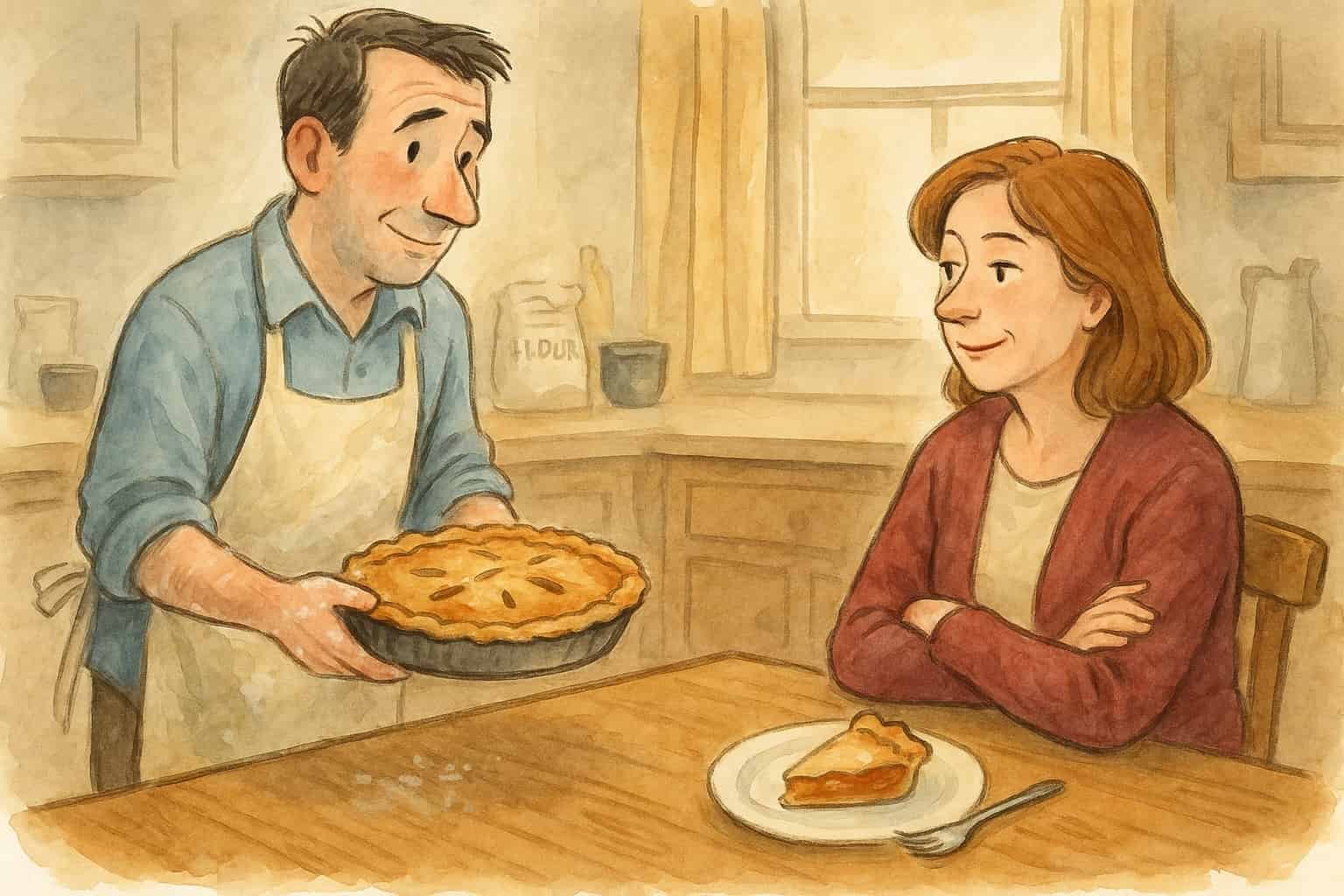Forgiveness Pie: Turning Guilt Into Dessert
From a story shared on the StoryCorps.
He started baking on a Saturday. Then the next Saturday. And the one after that.
His wife had discovered the affair six months earlier. The shock had passed, but the ache remained, that hollow, stomach-tight ache that comes when trust is gone but love hasn’t fully left. She was still deciding whether to stay.
So he started making pie.
At first, she thought it was a distraction tactic. “You think I’ll forgive you if you feed me?” she said one morning, looking at the flour-dusted counter. He shrugged. “I’m just trying to make something good again.”
Every weekend, a new attempt appeared: apple, blueberry, banana cream, pecan. He’d burn one crust, underfill another, and keep trying. She refused most slices but didn’t stop him from baking. Maybe because, for the first time in months, he seemed still enough to notice the quiet.
The Slow Recipe of Repair
Forgiveness rarely happens in dramatic moments. It happens like pie crust—slowly, messily, with more butter and patience than you’d think necessary.
Every weekend, his baking became a ritual of showing up. It wasn’t the pies that mattered; it was the consistency. The apology had taken form: flaky, uneven, but warm.
One evening, she walked into the kitchen and found him staring at a pie that had collapsed in the center. “Well,” he said, “that’s about how this feels.” She laughed for the first time in weeks.
Months later, he made a chocolate chess pie. The crust was uneven. The filling cracked. But he set it down in front of her anyway, poured coffee, and sat across the table.
This time, she took a bite.
“It’s good,” she said softly. “Still a little bitter, though.”
He smiled. “Yeah. Me too.”
That moment wasn’t forgiveness… not yet. But it was something close: a shared table again, the first one in a long time.
She told a friend later, “It was the first slice that didn’t taste like guilt.”
Why the Little Things Matter
Grand gestures are overrated. In affair recovery, trust is rebuilt through the repetition of small, ordinary choices that prove change isn’t temporary. Whether it’s a pie, a cup of tea, or a consistent phone call, every genuine act says, I’m here. Still here. Still trying.
And humor helps. It lightens what shame makes heavy. Because sometimes laughter is the only way to know healing has begun.
You don’t have to bake pies to make amends. (Though if you do, chocolate chess apparently helps.) What matters is the effort to create something good where something was broken.
Healing often starts the same way a pie does, with the simplest ingredients: time, patience, and the willingness to make a mess while learning how to make something sweet again.
Do you have something to share? Tell us about it.

